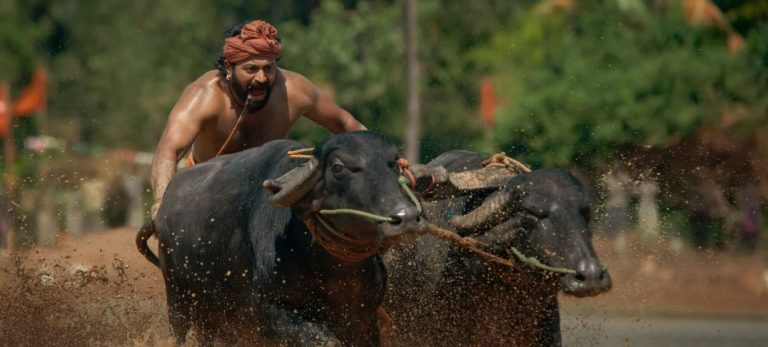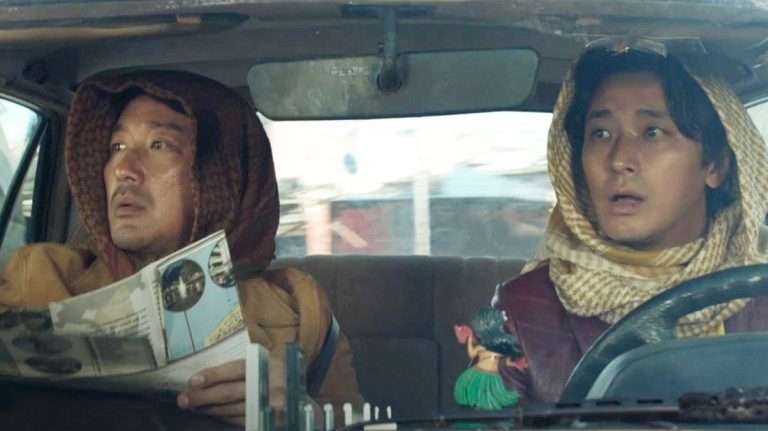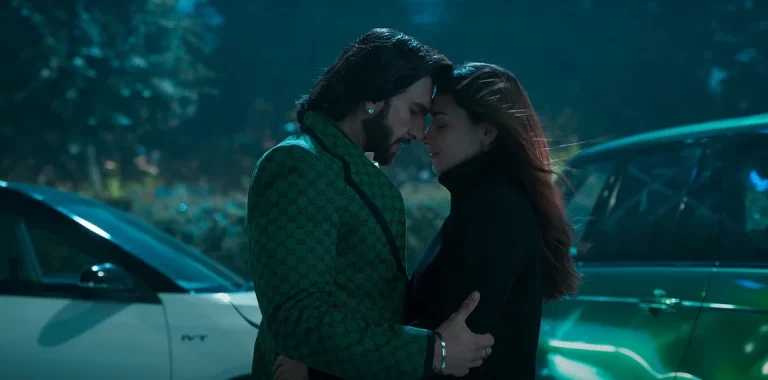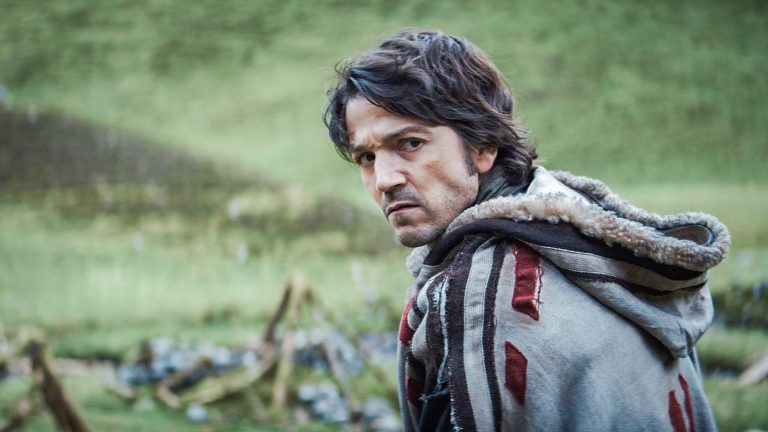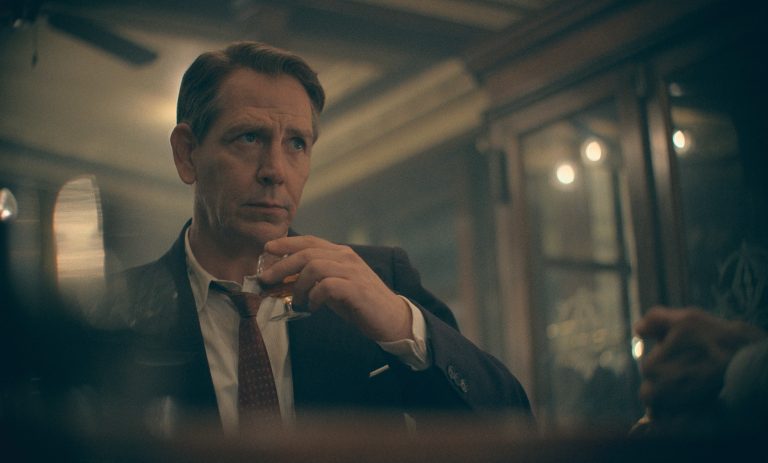Interview with Andrew Durham: It has never been easy to follow stories set at the heights of the AIDS pandemic without being inextricably soaked in tears. I prefer to think of it as a result of a dark course of history we have yet to understand. Or that we are yet to receive justifiably layered adaptations of such records. Like ‘A Home at the End of the World,’ the novel by Michael Cunningham from 1990, that was rather poorly adapted to the screen in 2004. So when ‘Fairyland: A Memoir of my Father,’ the memoir of Alysia Abbott, got released, it was so reasonably acclaimed for the complete portrait it provided, not only by depicting queerness in San Francisco (the LGBTQ capital of the world) but also by recounting family bonds.
Alysia was raised by her widowed, queer father in means that are still deemed unconventional parenting and faced all the challenges an average adolescent is called to. Andrew Durham picked the story up, updated it with his personal experience, dressed it in vibrant imageries, and delivered a solid coming-of-age chronicle from the 80s.
The film features Scoot McNairy as Steve Abbott (who, besides being a single parent, was – not so incidentally – a poet and novelist) and Emilia Jones as Alysia. It premiered at the Sundance Film Festival last January and this fall was brought to the Leiden International Film Festival. That’s where I found Andrew and got the chance to hear about his story.
Sofia Topi: The story of ‘Fairyland’ challenges the traditional family structures. The fact that it is based on a memoir only makes its arguments on single parenting and queer fatherhood stronger. I think this is one of the most unique features of your film – presenting a reality hardly ever depicted (whether on the screen or in the pages), which is the constitution of a queer family being connected to sexually liberated communities but not entirely relying on them for their interpersonal biological bonds. That is what strikes me in ‘Fairyland’. What has primarily attracted you to the original story?
Andrew Durham: I actually had a similar experience with the story. I grew up with a gay father in San Francisco, around the same time as Alysia did, in the ‘70s and ‘80s. Once my parents got divorced, my brother and I stayed in the suburbs with my mother, and my dad moved into the city. We would spend our weekends with him. We would go out to the theatre together, or for dinners, or to parties with his friends, so we got to know his community. Then we would go back to the suburbs and keep doing what all the regular kids would do, like soccer practice.
Neither of us felt comfortable sharing what we would do over the weekends with our dad because we didn’t know any other kid who had that. And, of course, there were all those adolescent gay jokes that flew around, and that would shy us away from sharing. I know that times have changed, and there are a lot of kids now being raised by gay parents, with a lot more acceptance. But back then, I felt I was the only kid. I felt that way until I read Alysia Abbott’s book, and I could resonate with so many of the things she described.
A lot of that was about navigating this balancing act between her high school friends and her relatives and the life she had with her father. That was something I could relate to. Sofia Coppola, our producer, knew about my background and my upbringing, so she presented the book to me.
Sofia Topi: That is an enlightening point for someone (like me) who hasn’t read the book, but anyhow, the dialogue between the real story and the images of the film was quite discernable. Thinking of that, your script follows a clean, nearly linear timeline of events, where we get to see the predicaments of a child growing up. You captured all the complexities of what it means ‘coming-of-age’ under the constant impact of the failures and achievements of the parent (single or not). Somehow, this growing-up process in your film is justified, or at least impossible to question. What were your intentions in this respect? How much of these were suggested by the book, and how much was your own input?
Andrew Durham: The whole story is presented from Alysia’s point of view, linearly. It was important for me to do that, not just in the writing but also in how we shot the film. We made sure that when she was a kid, the camera was always looking up. When she became a teenager, we brought the camera to eye level, which is more confrontational and rebellious. Of course, towards the third act, Alysia is a grown-up, and the camera is leaning downwards toward Steve, her father. The composition here is a lot more stable. The movie matures as the character matures. The first part is shot almost like a student film, in 16mm film with a very rough look on it. In the third act, it gets a lot clearer and sober, so we shot on digital. These are all conscious decisions, steaming from Alysia’s perspective.
My childhood was probably a little bit more conservative compared to the bohemian lifestyle of Steve and Alysia. But when it comes to the latter half of the story, my experience was very similar to the one described in the book. When Steve got sick, it was around the time when my father got sick. My dad died in 1992, the same year as the passing away of Steve. So, I felt that I could bring along personal emotions from those years to the final scenes.
For the third act, I almost shifted a little bit away from her book. Sometimes, when you are dealing with filmmaking and actors, you need to connect with them and make sure they understand what the character is going through, and I could help Scoot (McNairy) and Emilia (Jones) with that. They would ask me questions about how I emotionally experienced similar moments in the book, and I would tell many of my personal feelings about that time; especially when it comes to some complicated things, like coming home to take care of a sick parent.
I think it’s not just an AIDs situation, it’s a universal story of so many people dealing with an aging or sick parent. When you have to sort of, leave your life at the pick or prime because you got that call to go home and take care of your parent. I could understand the frustration, sometimes even anger, that Alysia explained in the book, and I was able to pass this conflict on to Emilia. It was really important to me to be sympathetic to both sides because I lived that.

Many of the conversations of the third act came from my personal experiences. For example, there is a scene in the pharmacy when Alysia runs into her old roommate, Paulette, and she talks to her about what’s going on, especially regarding the medications. That was the exact conversation I had as a kid. These medications were experimental at that time. I was really worried about my dad taking them. It seemed that they made him sicker. But then it was explained to me that all these men weren’t necessarily taking these medications to cure themselves but hopefully to help the next generation. Ultimately, I think history has shown that those efforts have paid off.
Sofia Topi: Maybe we can stick a bit to the third act; I was taken by the final monologue of Alysia after the death of Steve. I found it enriching the story with this beautiful and resonating idea of carrying one’s family legacy and actively acknowledging the responsibility of it. If we can think of it in the larger scheme of things, how do you perceive it?
Andrew Durham: It was very important for me to keep this last monologue, and thank you for noticing that. It is something Alysia wrote and resonated with me. Especially when she says that this is not just her history but our history. No matter what background you come from, your story is part of all our stories. We have to be empathetic towards other cultures. Everything that happens to any group of people is our history, and we all have to understand it and learn from it. I think that is a very profound point of the book. I wanted to have it reinforced, that is why, at that point, she is facing the camera.
This pretty much goes for family legacies as well. Alysia is referring to those people she grew up with and who were bohemian, living their own lives within found families. People who moved to San Francisco at those times were part of the hippies’ community, the gay one, or the civil rights one. The city was open and welcoming to anyone, but they are basically the reason why this city has been this incredible place for so many decades afterward.
Even though San Francisco has become over the years very much a tech destination, you still see the effects of that previous communities. I think it’s also the reason why a lot of the tech people migrated there. When I was a kid, growing up in the heart of Silicon Valley, those who are now sort of running the world back then were all hippies, experimenting. They didn’t want to just take a corporate job; they wanted to change the world. They almost feel like ghosts now, but we must remember people from the past generations who created these environments.
Sofia Topi: Besides the story itself and the importance of the third act, your film holds exceptional details on the aesthetics of that period in this specific context. I am thinking, for example, all the settings and the dressings, or even some comments within the dialogues; for example, one character mentions that gay pride was previously referred to as gay freedom. As a professional who has been working in moving images and the arts at large, how have you experienced the representation of queerness and single parenting so far?
Andrew Durham: When you are pitching a film like this to investors, studios, or production companies, you always have that one example of a movie about gay parents. And they will respond that this story has been told before. It is so interesting when you think about how many movies are made about the same thing over and over again. Of course, we all have different takes on the same stories or genres, and that is what makes a film unique because you are watching it from the point of view of the creators.
But obviously, I don’t think that the representation has been enough, especially in mainstream (Hollywood) movies. I can probably name, on one hand, the number of movies that have addressed this topic. Hopefully, since there are so many kids growing up now with gay parents, they will have all these stories as adults, and they will resonate with this film, or they will start telling their own stories.

Sofia Topi: I understand that a film like ‘Fairyland’ needs years of preparation and production before it can be communicated to a wider audience, especially for an independent, small-budget film, but it happens that it came on the screen only months after films like ‘Scrapper’ or ‘Aftersun,’ that equally (on their ways) bring up intimate stories related to the father-daughter bond, from the perspective of a child. If we can draw this thematic line together, how do you think this came to be a distinct movement in filmmaking? Do you see yourself as part of the broader social commentary storytelling?
It is hard to answer. I never really think of what sort of filmmaker I am. I think that most of us (as artists) try to make stories that resonate with ourselves. Especially when starting, since it is my first feature film – as is the case for Charlotte Regan (‘Scrapper‘) and Charlotte Wells (‘Aftersun‘). It is quite often for filmmakers, when they make their first films, to gravitate towards more personal material, maybe something about their childhood. So many filmmakers started with coming-of-age movies. I don’t know if this is something we just do as filmmakers, or it is a subject matter that is easy for us to relate to, or we have a lot of nostalgic memories or childhood issues we want to address and hope that the filmmaking process will help us with that.
Sofia Topi: You are quick to spot on there, I do agree there is a general tendency for autoethnography in artist expression, maybe to process the realities we live in. You mentioned that this is your debut film, preceded by a solid career as a photographer and producer. How would you say this experience has equipped you for this new role?
Andrew Durham: I have a mixed bag of backgrounds. I went to the UCS film school, then I worked as a studio executive, and when I got bored sitting behind the desk, I went back to my early passion, photography. Until Sofia Coppola gave me this book. So, I put my movie director hat on and started working on developing this project. They were all huge assets. For one, this experience of working as a studio executive helped me a lot with the conversations we have been having with production companies while trying to raise money.
I used to be one of them, so I understood where they were coming from, and I understood what they had to deal with as well. It also helped me not to get too frustrated or to not give up. Because I used to be on the other side, I was probably a little bit more understanding and not as resentful from all the nos we were getting. When it came to shooting the film, when I entered the set, I felt like coming home. It was such a comfortable place for me since I’d spent so many years on the set. They can be intimidating for a lot of people because everyone on set has their role, and they seem focused and on top of what they are doing.
The last thing you want is to walk on the set, not knowing what you are doing. As a first-time director, it is very helpful to know exactly what sort of conversations you need to have with the gaffer, the best boy, the on-set dresser, or the costume designer. I knew what they all did and how important their roles were. I had an idea, I had a vision, but I was also able to articulate it to them because I knew what they could do. Filmmaking is such a collaborative process, you have to appreciate what all of those people are bringing in. Every single person on the set is so important.
Sofia Topi: As a closing question, High On Films would like to know about your cinematic high; what film references have inspired you to be involved in filmmaking?
Andrew Durham: I grew up in a college town, and we didn’t have a lot of mainstream movie theaters, but we did have art houses that would screen foreign and independent movies. These movies shaped me a bit as a storyteller, and my voice is probably more influenced by that. I also spent my college years literally just watching movies, writing about them, and making movies. I had this passion all through my youth.
When you love filmmaking, similarly to having a passion for any type of art, you kind of love all the movies. All of the films I watched as a kid, they would all excite me. Anything I would see on the big screen; that’s what it was, seeing a movie in a theater on the big screen, as opposed to watching something on television.
You don’t really get to appreciate what the filmmaker is trying to do when you are watching on your TV at home—God forbid you are watching on your laptop or your phone. It is just so different. I have always loved the films of Bob Fosse. Traditionally known as a choreographer, he went on to make just a handful of movies before he passed away. From ‘Lenny’ (1974) to ‘Cabaret’ (1972) to ‘All That Jazz’ (1979). As a little kid growing up, I would see them so sophisticated and glamorous, so cinematic. I always loved his films.
For ‘Fairyland’ there were a number of films that I started using as my references for my costume designers, cinematographer, and many of my actors. I would also watch them sometimes when I was just writing. They are mostly stories told from the children’s perspective, like ‘Fanny and Alexander’ (Ingmar Bergman, 1982), ‘My Life as a Dog’ (Lasse Hallström, 1985), ‘Alice in the Cities’ (Wim Wenders, 1974), and of course ‘Paper Moon‘ (Peter Bogdanovich, 1973). Even Louis Malle’s ‘Pretty Baby’ (1978). I love all of these films.

![Take Me Somewhere Nice [2020] MUBI Review – ‘Stranger than Paradise’ with a female-gaze](https://79468c92.delivery.rocketcdn.me/wp-content/uploads/2020/05/Take-Me-Somwhere-Nice-highonfilms-768x432.jpg)
